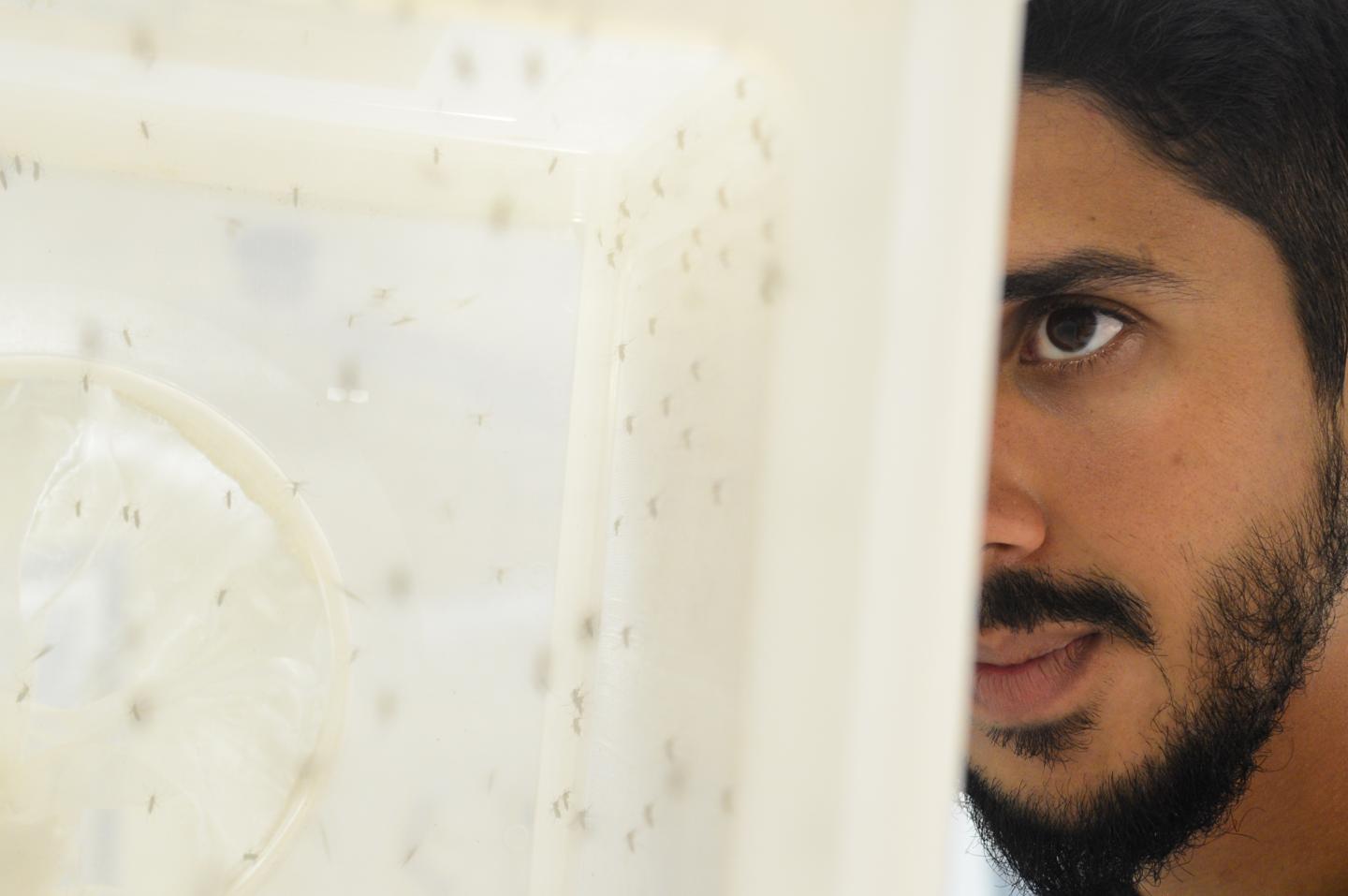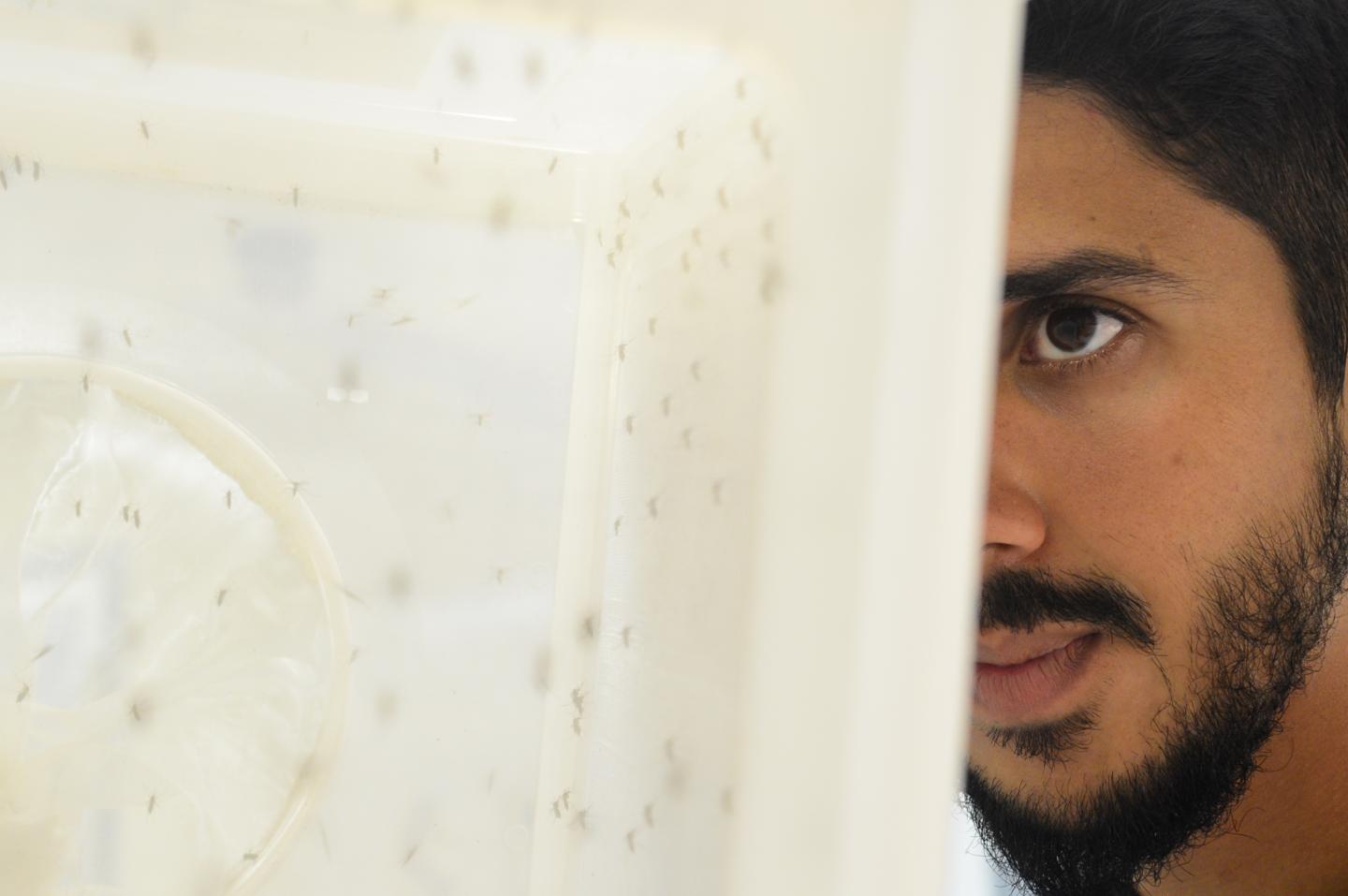
Aedes mosquitoes carrying the bacterium Wolbachia–found inside the cells of 60 percent of all insect species–are drastically less able to transmit Zika virus, say researchers at Brazil's Oswaldo Cruz Foundation (FIOCRUZ) in a study published May 4 in Cell Host & Microbe.
This is the first report on the effect of Wolbachia bacteria on Zika virus. Originally inserted into Aedes eggs as part of the Eliminate Dengue Program, the bacterium is passed on from mother mosquitoes to offspring, so it is a sustainable control agent. The approach is already being piloted to control Dengue virus transmission and, with the proper resources and approvals, there's infrastructure in place to increase the scale of current trials to also help tackle the Zika epidemic.
Wolbachia bacteria were first identified in 2005 as a way to combat mosquito-borne infections. After four years, researchers were successful in their attempts to isolate the bacterium from fruit flies and get it inside Aedes mosquitoes' eggs, without using any genetic alteration. They expected Wolbachia to shorten mosquitoes' lifespans, but the bacterium provided an added bonus, in that it heavily reduced the Dengue virus replication in the mosquito. The bacterium, it seems, has the same effect on Zika transmission. The same effect was previously seen on Chikungunya virus, also transmitted by Aedes mosquitoes.
"The idea has been to release Aedes mosquitoes with Wolbachia in the field over a period of a few months, so they mate with Aedes mosquitoes without Wolbachia living in the place and, over time, replace the mosquito population," says senior author Luciano Moreira of the Oswaldo Cruz Foundation. He is also actively involved in the Eliminate Dengue Program, a non-profit that is testing the approach in 40 locations around the world.
"Zika and Dengue belong in the same family of viruses, so with the outbreak in Brazil, the logical idea was to test the mosquitoes carrying Wolbachia by challenging them with Zika virus and see what would happen" he says.
Moreira's team gave Brazilian field mosquitoes and Wolbachia-infected mosquitoes Zika virus by feeding them human blood infected by two recent strains of the virus that is circulating in Brazil. After two weeks, the researchers saw that mosquitoes carrying Wolbachia had fewer viral particles in their bodies and saliva. The tests showed that the virus present in the mosquito saliva was not active–meaning that, after biting, the mosquito would not be able to transmit Zika virus. The reason for this drop in viral reproduction is unknown, but one theory is that because Wolbachia lives inside of the mosquito's cells, if the virus goes inside the cell to replicate, then there is an internal competition for resources. Surprisingly, this drop held true no matter how many Wolbachia the mosquito carried.
"Wolbachia showed to be as effective on Zika as the most important Dengue experiments we did," Moreira says. He cautions that the strategy is not 100 percent effective nor will it eliminate the virus. "We know that there will not be only one solution for Zika–we have to do this alongside different approaches, like vaccines or insecticides, besides the public measures to control Aedes breeding sites."
He is currently discussing the Wolbachia approach with the Brazilian Ministry of Health, hoping to raise the resources and public support to test its effect on Zika in the field.
###
This work was supported by FAPEMIG, CNPq, CAPES, the Brazilian Ministry of Health (DECIT/SVS), and a grant to Monash University from the Foundation for the National Institutes of Health through the Vector-Based Transmission of Control: Discovery Research (VCTR) program of the Grand Challenges in Global Health Initiatives of the Bill and Melinda Gates Foundation.
Cell Host & Microbe, Dutra et al.: "Wolbachia blocks currently circulating Zika virus isolates in Brazilian Aedes aegypti mosquitoes" http://www.cell.com/cell-host-microbe/fulltext/S1931-3128(16)30157-3
Cell Press Statement on Data Sharing in Public Health Emergencies
The Cell Press family of journals is committed to ensuring that the global response to public health emergencies is informed by the best available research evidence and data, and as such, we will make all content concerning the Zika virus free to access. We will work in partnership with reviewers to fast-track review all submissions concerning Zika. We will adapt the editorial criteria that we apply to Zika submissions by asking reviewers to evaluate only if the research methods are sound and support the conclusions and if the work will contribute in some way toward resolving the immediate challenges. We will expedite publication of papers that meet these two criteria.
Cell Host & Microbe (@cellhostmicrobe), published by Cell Press, is a monthly journal that publishes novel findings and translational studies related to microbes (which include bacteria, fungi, parasites, and viruses). The unifying theme is the integrated study of microbes in conjunction and communication with each other, their host, and the cellular environment they inhabit. Visit: http://www.cell.com/cell-host-microbe. To receive Cell Press media alerts, contact [email protected]
Media Contact
Joseph Caputo
[email protected]
617-397-2802
@CellPressNews
http://www.cellpress.com





